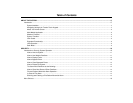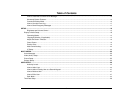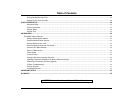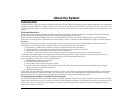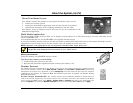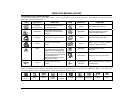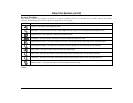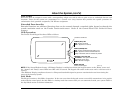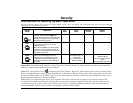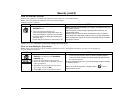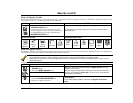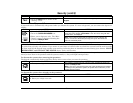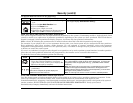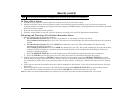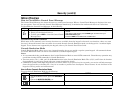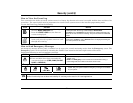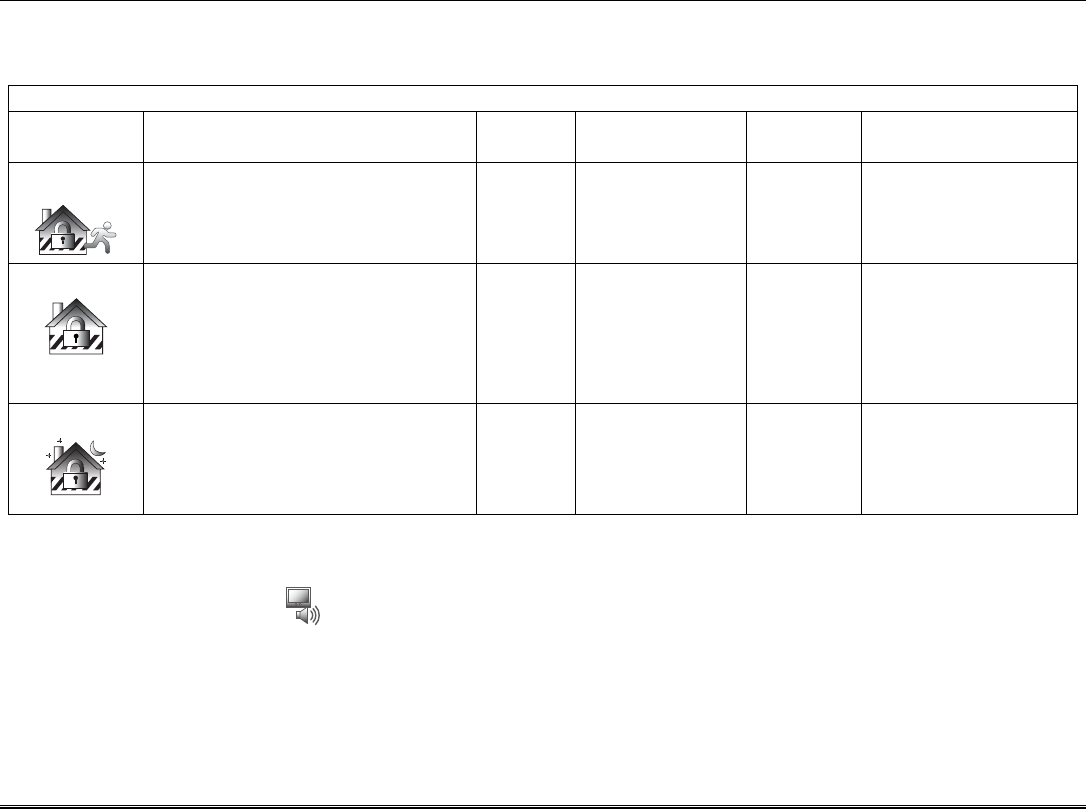
10
Security
Introduction to Security System Operation
You can arm the system in one of three arming modes: Away, Stay, and Night. The following table lists the three different
arming modes and the results of each.
FEATURES FOR EACH ARMING MODE
Arming
Mode
FUNCTION Exit
Delay
Entry
Delay
Perimeter
Armed
Interior
Armed
AWAY
Press to arm when no one is staying on the
premises. When armed in AWAY, the
system sounds an alarm if a protected door
or window is opened, or if any movement is
detected inside the premises.
Yes Yes Yes Yes
STAY
Press to arm when you are staying home,
but might expect someone to use the
entrance door later.
When armed in STAY, the system sounds
an alarm if a protected door or window is
opened, but you may otherwise move freely
throughout the premises.
Yes Yes Yes No
NIGHT
Press to arm when you are staying home
and do not expect anyone to use the
entrance door. Your installer may have
configured NIGHT Mode differently; have
the installer describe the actual settings of
this mode.
Yes
Yes (set for Away or
Stay Mode)
No (set for Instant or
Maximum Mode)
Yes
Yes (set for Away or
Maximum Mode)
No (set for Stay or Instant
Mode)
See Night Mode note below
Note: Night Mode (on Residential Panels Only) arms all perimeter zones plus all zones listed in Zone List 5.
Important: On Commercial systems, “Away Auto Stay” mode is shown as “Away” mode (with all zones monitored).
However, some interior zones may not be armed.
Note: The Voice Status Icon (
) indicates the Voice feature. Press the Voice Status Icon to hear system status.
Wait 3 seconds and press again to hear Zone Faults or Trouble conditions. Voice status will annunciate even if Voice
mode and Chime mode are disabled. Note that the Voice feature must be enabled (by the installer) for this icon to
function correctly during an alarm condition.
Note: There is a communicator delay of 30 seconds. This delay will prevent a report to the central station if the
control panel is disarmed within 30 seconds after an intrusion alarm is triggered. This delay can be removed, or it
can be increased up to 45 seconds at the option of the user by consulting with the installer. Note that emergency,
carbon monoxide, and fire-type alarms are normally reported without delay.



